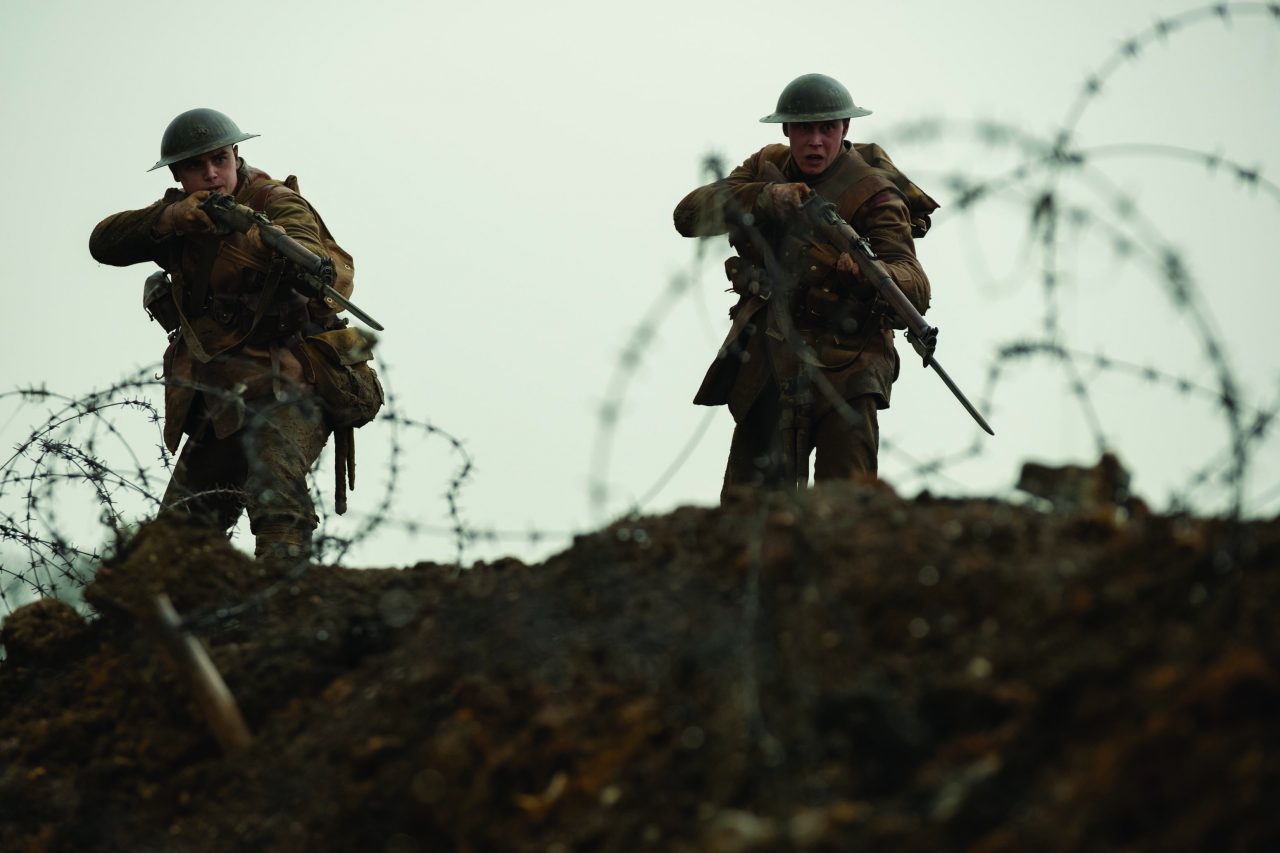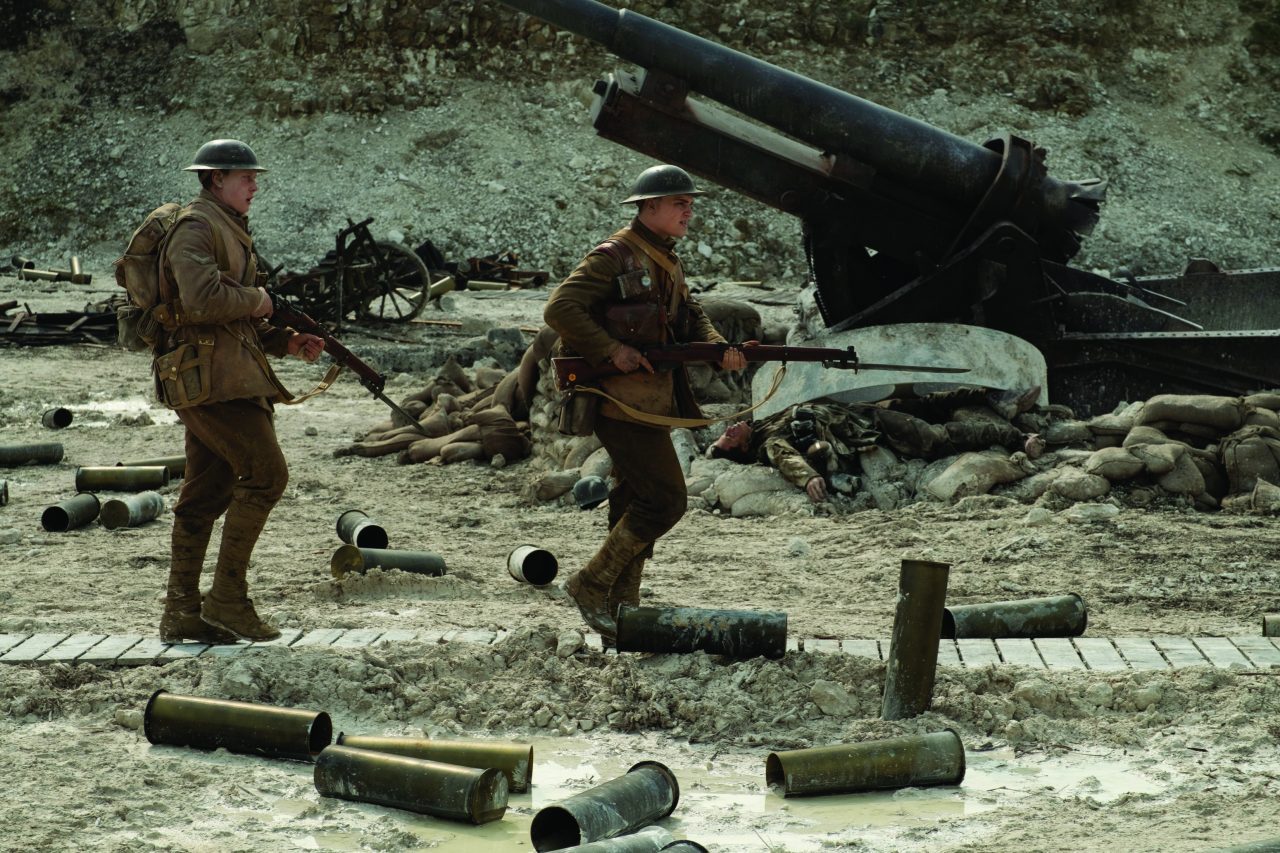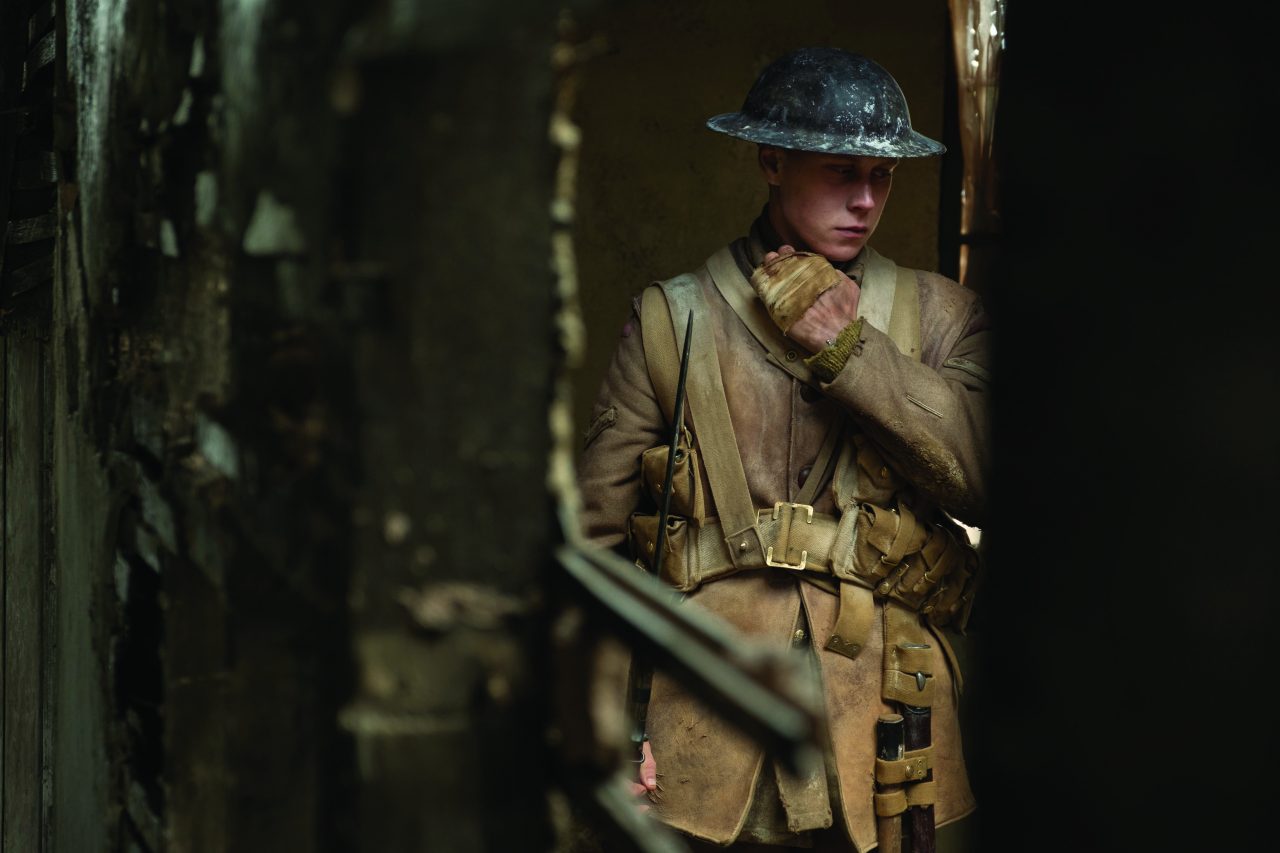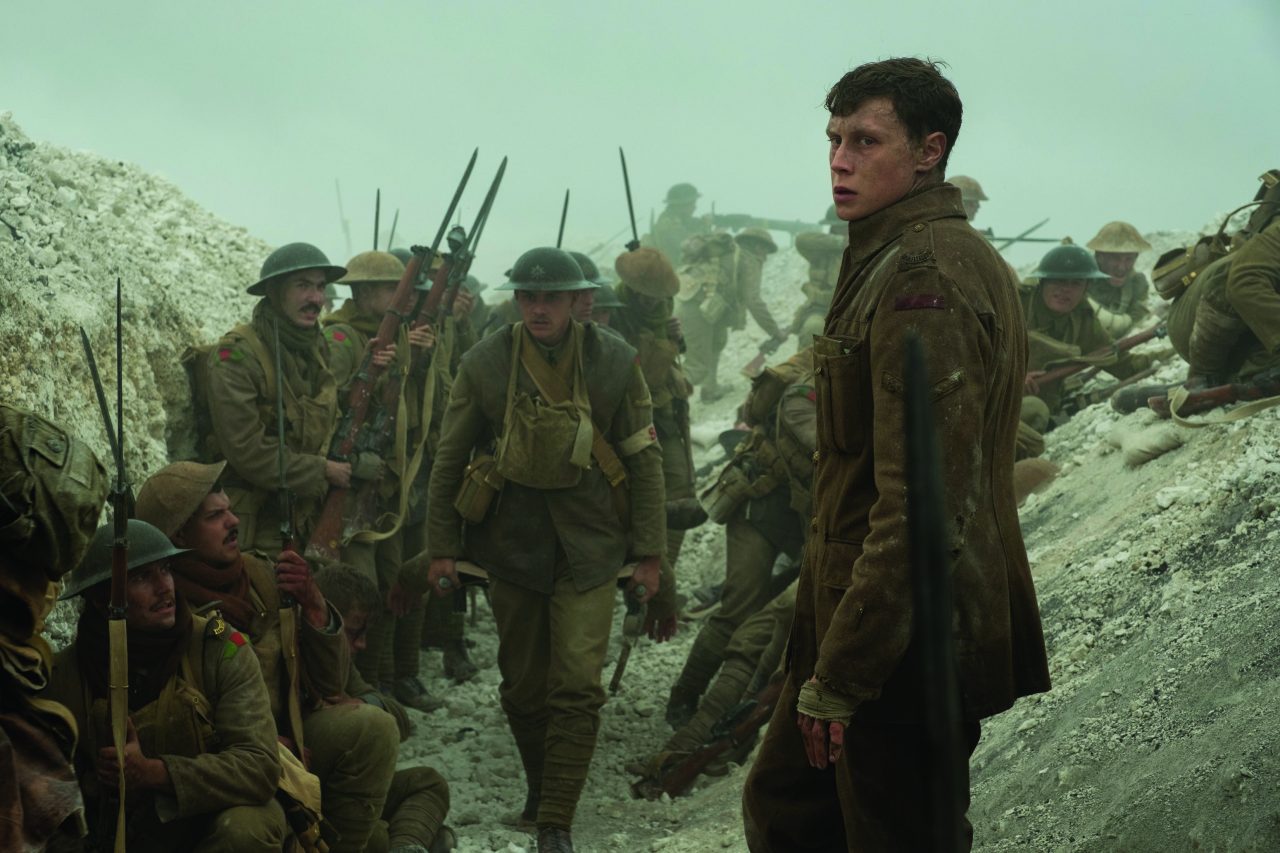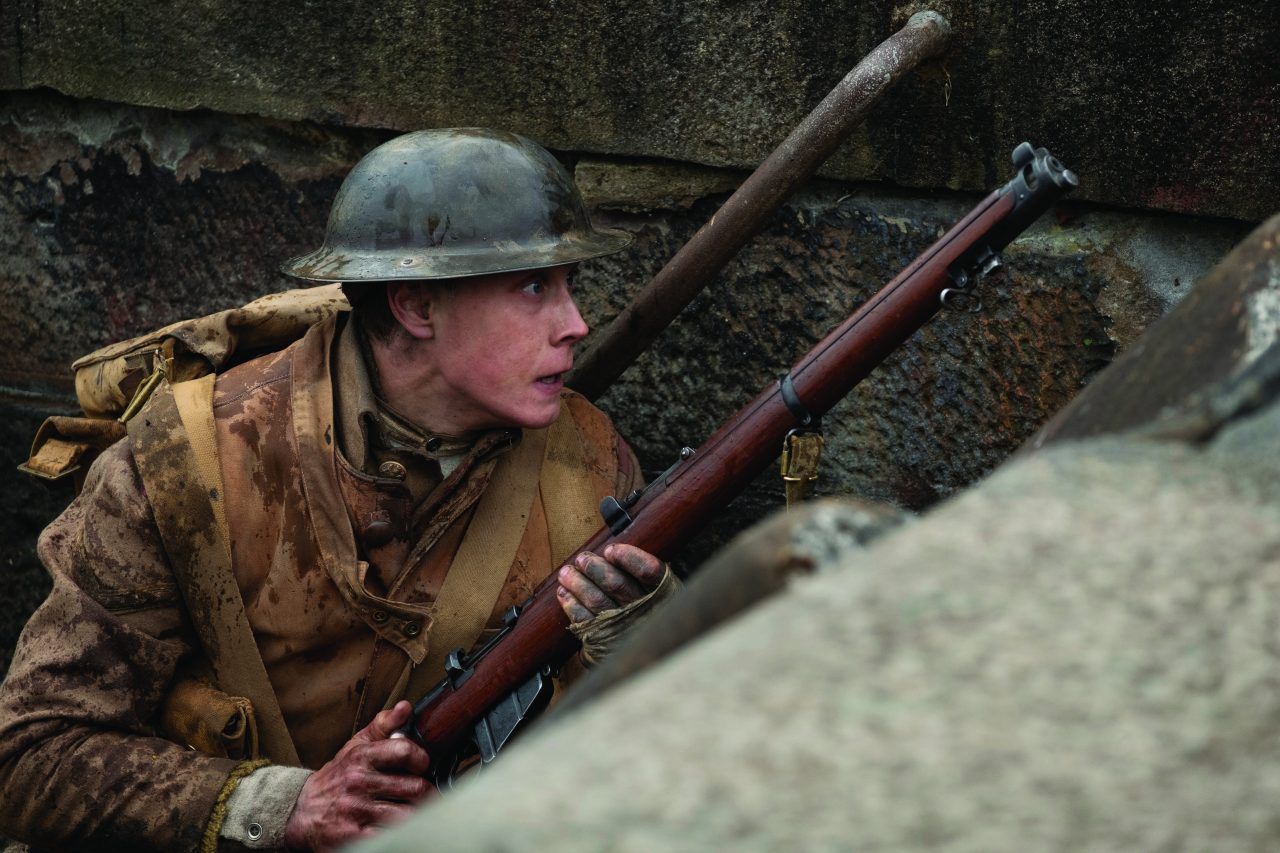Great movies broaden the PERSPECTIVE of their audiences.
In fact, this may be one of the biggest gifts which cinema gives to the world; an opportunity to empathize, to live through experiences which we would never otherwise have.
In a world where most movies strive to broaden our PERSPECTIVE, the WWI movie “1917″ sought to narrow it. The surprising result is some of the most eye-opening cinema we have ever experienced…and it’s not from what you might think.
“1917” is a captivating WWI film in which writer/director Sam Mendez offers audiences some of the most realistic, mind-opening encounters with true-to-life war since “Saving Private Ryan.” And in case you haven’t heard, Mendez and cinematographer, Roger Deakins crafted the entire movie as though it was made in one continuous shot.
Everyone is marveling at the logistical feat of producing an entire war film in one realtime take. And I agree, this is a colossally impressive achievement. But “1917″ crafts an incredible experience for viewers, and “one continuous shot” is only the tip of the iceberg.
Here are 4 less-obvious choices the filmmakers made utilizing PERSPECTIVE which contribute as much (or more) to this enrapturing movie:
1- One Vantage Point
This is similar to the “one-continuous-shot” choice, but vitally important to distinguish. Mendez could have achieved even more technical marvel by choosing to follow the action. He could have introduced us to more interesting characters or places. But instead, he forces us to share the vantage point of our 2 lead chaps, causing us to live the physically grueling journey that they lived, for better or for worse. We are heartbroken when they are heartbroken. We’re apprehensive to move forward when they are apprehensive. And of course, we are thrilled to share in their success when they succeed. This is the stuff that makes a great movie experience!

2- Limited Information
Limited information is true to real life. Even today with unlimited access to just about anything, no one can ever know it all. Now imagine yourself in face-to-face combat a hundred years ago when the telegraph, early telephones, and even signal lamps were the primary methods of communication. That is a perfect recipe for lack of life-saving intel.

“1917″ does a masterful job delivering information to characters (and therefore to audiences) at a suspenseful yet realistic pace. As a result, we share in our heroes’ fear, surprise, and even mistakes. Their success or failure depends entirely on the quality of their intel. They (and we) can only hope that it’s correct.
3- Mystery & Character
One of my favorite aspects of this film was the mysterious prominence with which the German army was able to intimidate the British troops.

We only meet a couple Germans face-to-face in the film. Yet through timely dialogue, revealing setpieces, and superbly-crafted story points throughout the script, we walk away from this movie with a dreadful admiration for the brute strength of this German force. Of course, we choose to root for our underdog heroes, which makes their success all-the-more important.
4- Universality
The limitations which Mendez forced upon himself with this approach surely caused some challenges. How could they achieve universal levels of conflict, theme, and meaning if audiences are only experiencing the story through the eyes of two soldiers? Perhaps the most impressive example comes from an antithetical scene in which one of our heroes stumbles across a baby.
Yes, an infant, hidden and protected in a warm safe haven amidst God-forsaken battlegrounds. This surprising moment in the film serves as a breath, a break from the chaos. Yet it serves a much higher purpose as well. It represents what WWI is about. In fact, it represents what all war is ultimately about: human life, in its miraculous, undefiled form. In a movie trapped inside the vantage point of one, Mendez manages to highlight for us the PERSPECTIVE of us all.
PERSPECTIVE is one of film’s most powerful tools. Whether you are making a broadcast commercial, sharing a corporate message, or rallying people to join a worthy cause, your film will benefit from well-crafted PERSPECTIVE.
Don’t sell yourself short. Take the appropriate measures to craft your film in a way that capitalizes on all the benefits that the medium has to offer. Then reap the benefits as your film creates a lasting impact on your audience.
